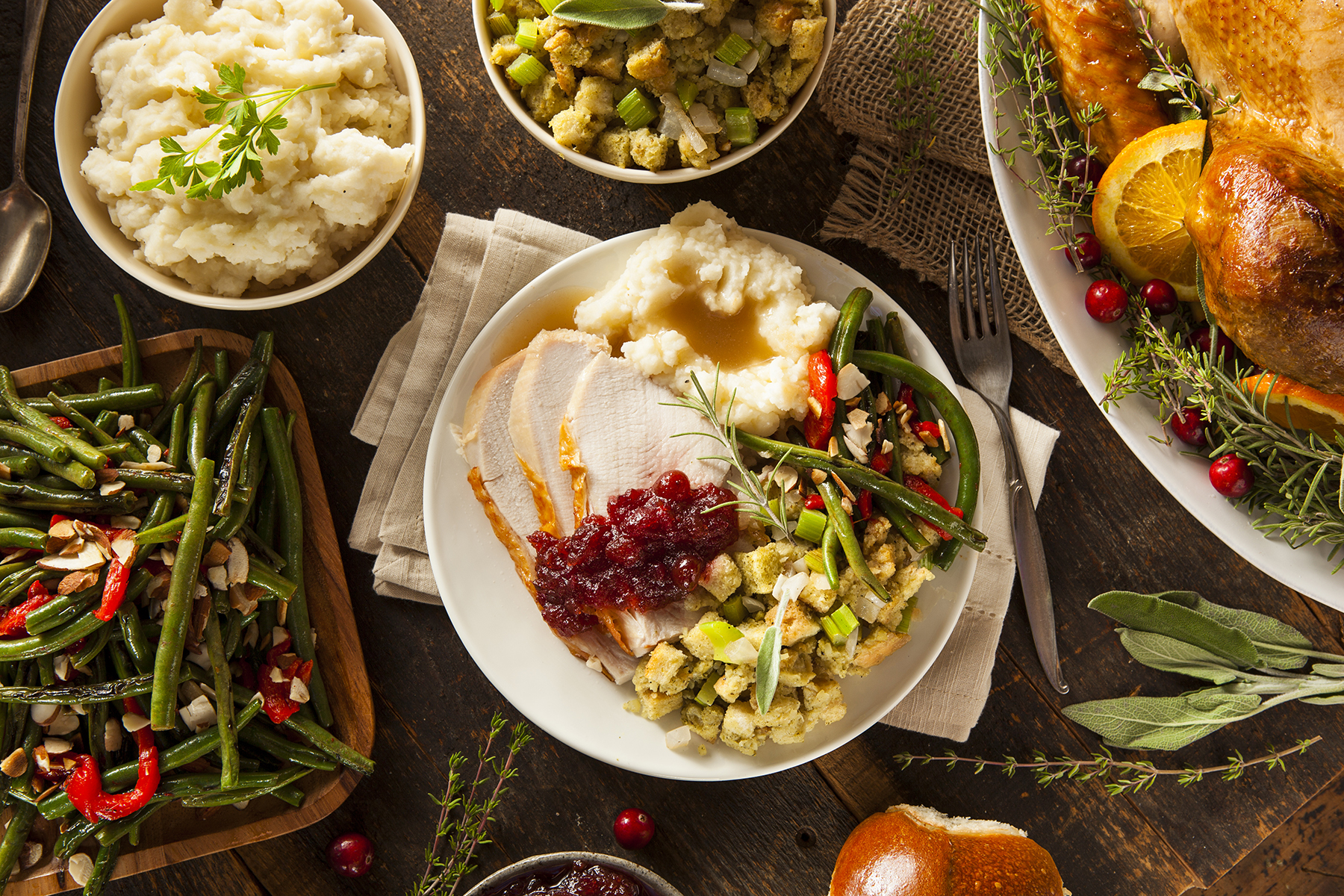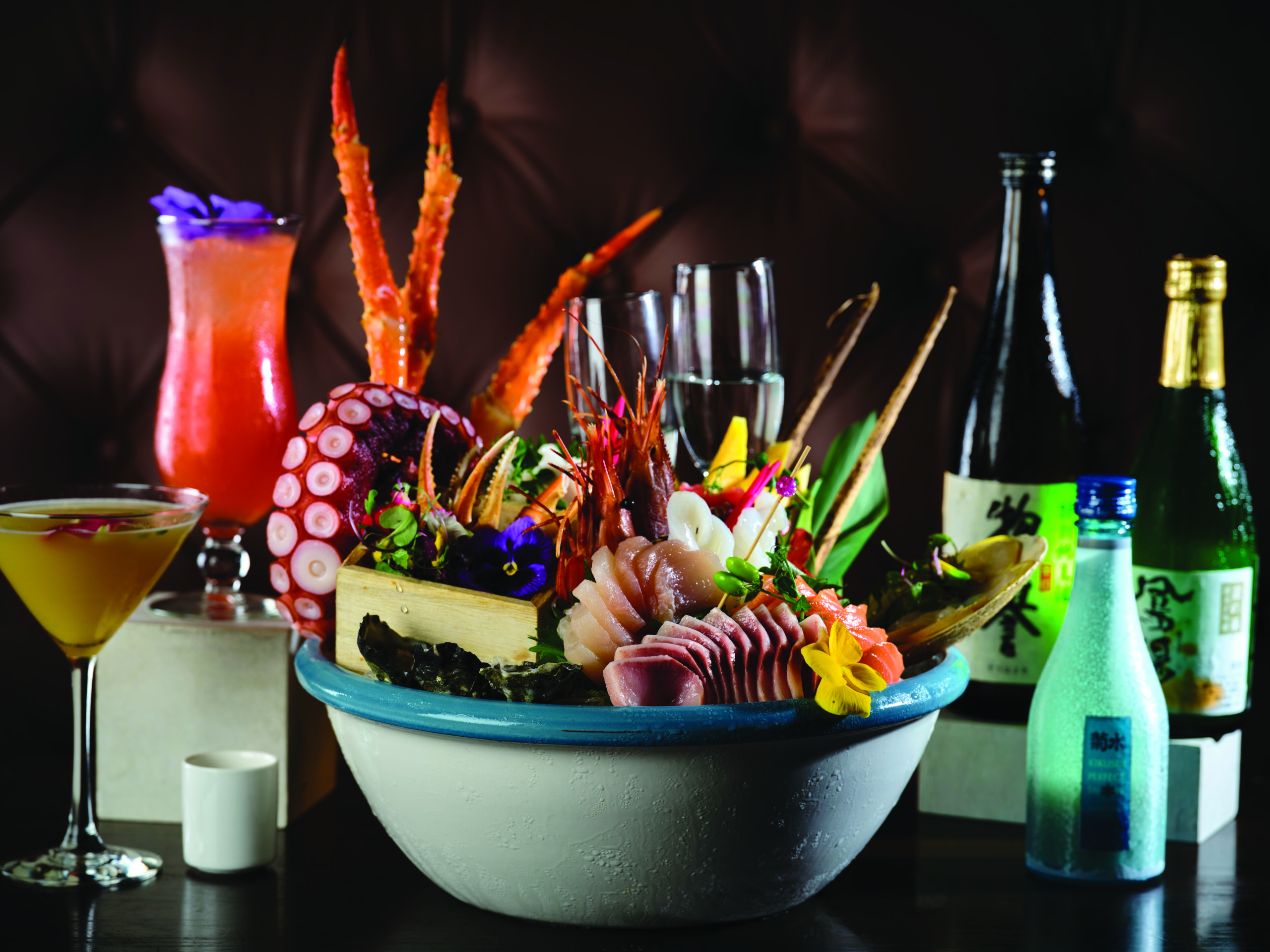At Atlantic Technical College and High School, students don’t eat ordinary cafeteria food. Instead, they’re fed by students in the culinary arts department, led by chef Rona Moulu. There, she leads her staff and teaches students how to prepare hot foods, using experience gained from more than 35 years cooking, including as a personal chef.
For the past 15 years at the school, Moulu has taught students a variety of cuisines, including Thanksgiving meals they serve at the school and around the community. Coconut Creek Lifestyle stepped into the ATC kitchen to get some cooking tips and recipes from Moulu.
Talking turkey: Though Thanksgiving images often include a large turkey, Moulu says the best way to cook it is in pieces. Breast meat has less fat and cooks more quickly than the rest of the turkey, so cooking the whole turkey together may result in drier white meat.
For her own turkey, Moulu keeps the temperature no higher than 325 degrees, cooking the white meat for a little more than an hour and the dark meat for about 1 hour and 30 minutes. Calculate about 20 minutes per pound; 25 to 30 minutes if the turkey is stuffed. (See recipe.)
Eat your veggies: Roasting vegetables is an easy way to cook for a big group and takes care of vegetarians. For perfectly tender Brussels sprouts, place them (along with olive oil, and salt and pepper) in a hot, dry pan that’s been heating in the oven for about 10 minutes. This will sear them perfectly. (Don’t forget to test tenderness with a fork.) If you’re making a soup, season your vegetables before adding them to a chicken stock.
Bring back a classic: We sing about chestnuts but rarely eat them. “It’s really one of those flavors that’s very old-fashioned,” Moulu says. “It’s a nut that’s mealy when you cook it for a while. It’s not as soft as mashed potatoes, but it’s got that texture.” You can chop them and saute them in some oil; cut an X into the shell, roast them in the oven and then peel them; or boil them for about 45 minutes. Try using them to enhance vegetable dishes, salads and stuffing.
Add a kick: Moulu stresses the importance of seasoning and advises to not forget about underused seasonings that could enhance a meal in unexpected ways. Try smoked paprika, tarragon (adds a floral note to chicken or vegetables), cumin and ground coriander. And don’t forget that fresh herbs such as cilantro, parsley and basil are added last.
Just desserts: If you’re tired of pumpkins, try another seasonal food. Pears are just as versatile as apples and work well in desserts. Saute them with melted butter, sprinkle in some brown sugar or drizzle some maple syrup, and then pour the hot concoction over ice cream for a delectable treat.
Put some heart into it: You can have fresh ingredients and the right tools, but Moulu says there’s a certain quality to good cooking as well. “Put some love into the food. … Make people feel good about eating your food; people can taste it if you’re in a bad mood,” she says. “If I’m in a bad mood, it’s very hard for me to cook. It’ll show in the food. Even with all my years of experience, it’s just not as good.”
Chef’s Choice
Chef Moulu offers two recipes to make your classic Thanksgiving better than ever.
Cranberry Orange Sauce
Ingredients
12-ounce bag of fresh or frozen cranberries
Juice of one orange
Zest from one orange (using a microplane zester)
1 slice of peeled ginger (optional)
3/4 cup sugar (less if you prefer)
1/2 cup water
Directions
In heavy, 2-quart saucepan, combine water, sugar, ginger slice and orange juice. Bring to simmer and stir to dissolve sugar. Simmer for 5 minutes. Add cranberries. Cook another 10 to 15 minutes until cranberries just break apart. Remove ginger slice. Add zest. Turn off heat and allow to rest. It should be jelly-like in texture when it cools. For a slightly spicy sauce, add 1/2 teaspoon of chipotle powder.
Juicy Roast Turkey
Feeds 6 to 8 people (12-15-pound turkey)
Defrosting and Brining Directions
Buy frozen turkey one week in advance and keep refrigerated in pan to defrost for five days. Once defrosted, cut turkey into leg/thigh quarters and breast. Brine turkey for one or two days in 2 gallons cold water mixed with 1 cup salt and 1 cup sugar. Dissolve salt and sugar before immersing turkey parts.
Prep Directions
Rinse brined turkey in cold water and pat dry. When poultry is dry, it will brown nicely. Preheat oven to 325 degrees. Cut up one onion, two ribs celery and one carrot into 2-inch pieces. Place onion, celery and carrot in heavy roasting pan with about 2-3 inches on the sides. Place turkey parts on top of vegetables.
Melt 1 pound of butter. Add some chopped parsley, chopped rosemary and five cloves of chopped garlic. Brush herb butter over skin side of turkey.
Reserve neck, giblets and wing tip for turkey stock.
Pour 2 cups of cold water in pan. Place turkey in oven and cover with foil for 45 minutes. Remove foil for remaining time in oven.
Cook
Breast meat will likely take 65 minutes; leg/thigh quarters, 90 minutes. Use thermometer in thickest part of poultry to check when it’s done. Breast should be 165 degrees; leg/thigh quarters, about 175 degrees. Breast will be done before leg/thigh quarters. Use any liquids to make gravy for turkey.
About C hef Rona Moulu
hef Rona Moulu
Though she now has more than 35 years of experience cooking, Moulu wasn’t always a pro in the kitchen.
“My own mother hates to cook, so I grew up on canned tuna fish,” she says.
It wasn’t until joining the Peace Corps after studying at Brooklyn College that she experienced the joys of cooking while living in a fishing village in West Africa.
“We didn’t have running water or electricity, so we had something like a hibachi,” she says. “I had to go all the way to Africa to learn about fresh fish.”
When she returned, Moulu studied at the New York Restaurant School (then part of the New School for Social Research). She spent the next several years working as a chef in executive dining rooms and a personal chef for private clients such as Calvin Klein.
For the past four years, Moulu has been the head of ATC’s culinary department where she relishes her students’ excitement for the industry.
“My focus is on getting the students into good jobs where they can really move up,” she says.




 hef Rona Moulu
hef Rona Moulu










